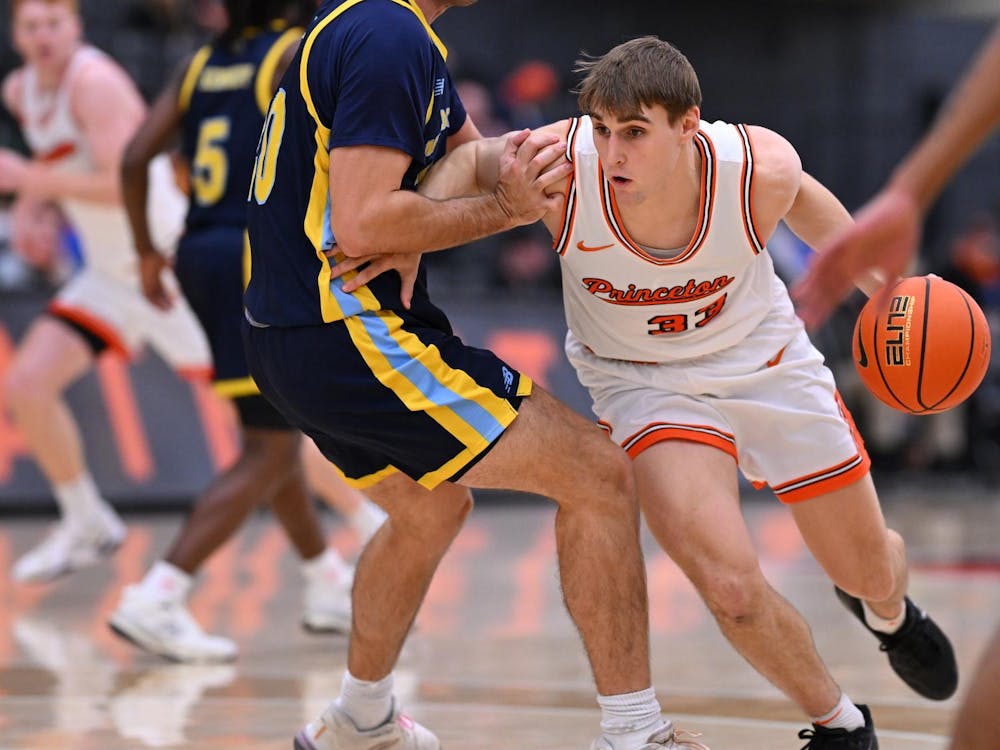It takes a special type of person to be a national champion. This status is usually achieved only after a lifetime of hard work and training. Becoming a three-time champion takes all this and a little luck. It should be nearly impossible to become a three-time national champion only three years after picking up a sport.
Nearly impossible, but not completely.
Junior Tyler Wren, a captain of the Princeton University club cycling team, is a three-time national champion. The native of the greater Philadelphia area showed up on campus in the fall of 1999 with no real experience in cycling.
Although he had been a cross-country runner throughout high school and planned to continue running at Princeton, Tyler was hindered by shin injuries.
He decided to join the club cycling team, which consists of 25 team members and races competitively in both the fall mountain biking and the spring road biking competitions sanctioned by the Eastern Collegiate Cycling Conference, made up of school teams from New York, New Jersey, Pennsylvania and New England. The National Collegiate Cycling Association is the organization that oversees the eight collegiate conferences that include hundreds of colleges across the country.
The NCAA does not officially recognize cycling because racers are eligible to win prize money in competitions when racing independent of their collegiate teams, which the NCAA considers as giving up one's amateur status. Collegiate teams cannot race for cash prizes. In fact, Tyler won $1,200 for his championship at the Fitchburg State Invitational while racing with his hometown team. However, this win does not even compare with the rest of Wren's impressive resume, which he has compiled in just three years of competition.
His most recent championship occurred over fall break at the Mountain Biking Collegiate National Championships in Roxbury, N.Y. Tyler was one of 275 total riders represented by 75 colleges after qualifying with his victory at the ECCC championships October 17th and 18th. In both the ECCC and national championships, Tyler was forced to use borrowed bikes after mechanical problems left his bike unsuitable for competition.
On October 26th, his first race was in the short track competition at Nationals, consisting of a 20-minute ride around a one-mile course and a challenging hill.

Tyler emerged from the pack five laps into the race to climb into the lead, finally creating a sizeable gap between him and his competitors. After this point his lead went uncontested for the rest of the race and he ended up finishing in first place a full minute ahead of the second-place finisher.
The next day Wren entered the cross-country competition, which is usually considered the main event of the championship weekend. All racers must complete an eight-mile loop three times.
However, on this particular day in upstate New York, the racers had to battle torrential snow and hail, which created muddy conditions. Tyler started off up front with the leaders, but on the first lap he crashed and injured his hand, incurring a sprained wrist and what was later determined to be serious internal bleeding. After the crash, he let very little time elapse before getting back into the race, but he did have to slow down considerably on the downhill portions of the track while shifting all gears with just his left hand.
On the climb up the main hill on the second lap, Tyler proceeded to leave all other racers in the slop, passing by them as he reached the peak. After this point early in the race he was able to maintain his lead and went uncontested. He soared past the finish line with a 4-minute lead on second place with a time 2:13.00, winning the championship "stars and stripes" jersey, the goal of all collegiate riders.

When asked his keys to success, Wren points to Pat Zahn '00, the cycling team captain his freshman year.
"I really owe a lot of my success to Pat and riding with the team." He credits Zahn with teaching him technique and racing tactics at clinics early in his career.
At this point he feels that his greatest strength in races is climbing the notorious hills scattered about each course.
"I get this mentality that I won't let anyone beat me up a hill," he said.
It is this winner's mentality that has taken a novice of three years to the sport and made him a three time national champion in both mountain biking and on-road competition, beginning with his first championship at the spring event in Colorado Springs, Colo.
"I've always loved the sport, but that's when I knew that I could go somewhere with this," he said.
At this point his success has classified him as a category-two racer on a scale that starts at five and works up to one. Category One writers are able to turn pro. It usually takes a number of years to work up only a level or two, which puts Tyler well ahead of schedule and gives him hope of turning professional after graduation in 2003.
"There is no other time in my life when I can really give [turning pro] a shot, and if I didn't give it a try I'd be regretting it for a long time," he said.
No matter what happens, no one can argue that anyone who is able to transform himself into a national champion in only three years of experience with his sport can have any regrets at all.







